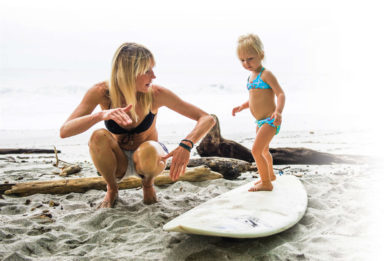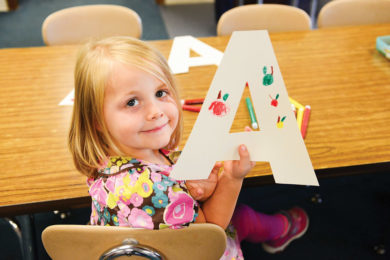
Setting your children up for a successful move and a new life
Moving to a new place and setting up a new life is no easy task. It requires a great degree of energy and stamina. The degree of change and diversity is so great that it becomes quite a challenging experience for most of us. If adults find it hard at the best of times, imagine younger children, lacking a wider perspective and awareness of the world at large.
Let’s be honest, our natural tendency to change is to react to it and resist it, and for our little one’s change may be a bit more than we anticipated. We know that children thrive in routine and certainty, and an expatriate move provides a complete change of the world as they know it, which can present a really unsettling time for our little ones. Every child is of course different, and their personalities and age at the time of the move will present different responses to the adjustment. They will be facing a new life with a lack of belonging, among strangers, and will have to face new social rules and ways of living. If your child is in school, moving into a new school may bring additional challenges, as they try to align what they know to the new curriculum and way of doing things.
For children specifically, moving to a new place and leaving behind life as they know it can be a very daunting time. On top of that they will be leaving behind friends, family and possibly pets they have come to love, and will undoubtedly grieve their loss. But don’t let any of the above scare you or put you off. After a small period of adaptation, and with some proven practical tips to help them ease into their new life, your children will be reaping incredible benefits from being exposed to a whole different way of life.

Here are some proven tips that will help your little ones adapt with ease into your new location: Be empathetic: For children, focusing on the negative aspects of a move will simply be a natural reaction, and you must validate their feelings with empathy, without holding judgement. They probably have not been faced by loss or change to such a degree before, and even if they did, change will seem much bigger and more real to them than for adults. Prior to the move, it is very important to help them understand and explain the benefits of moving to your next destination.
Educate them about your next new life: One of my favourite tools that has worked best for me with my little ones, is to create a storybook with our move, including an acknowledgement of life as they know it, the reasons for the move, and a vision of our new lives in our new location, adding plenty of images of the people, key places, traditions, etc; so, when we got to our new place, they were already familiar with some aspects of it, which made them feel at ease. So, if you know the hotel or accommodation where you will stay initially, the school they will attend, places to visit, etc, help them create a vision of what their new lives will look like. This acts as a way of helping them visualise their new life, and their little brains will become more conditioned to these changes, which will help in the process of adaptation.
Let them express themselves: It is very important to acknowledge their feelings, and give them the time to express their emotions and fears about the move. Let them relate their sadness about leaving people they love behind, their fears about the new life that awaits them, and don’t dismiss any of their feelings. Reassure them that you will do everything you can to make the move as easy as possible, and that no matter what, you will always be there for them. It is also helpful for you to be open and express to your children how you feel about the move too, being careful not to portray a negative picture that may be adopted by your little ones.
Allow plenty of time: The initial weeks prior to and after the move are the most critical ones. If you are able to, give yourself time to say your farewells, visit all the places they love, take frequent breaks and relax, and take time to play and enjoy each other’s company. It is important to allow plenty of opportunity to get closure with life as they know it. In your new location, try to find the time to go on exploring trips and adventures to interesting places, and make it an exciting time despite the unsettling feeling you may have. Pretend you are on an extended holiday, only this time you get to go back to a base and call it your home.
Involve them in the process: What will really help your children is to include them in the move whenever possible. Help them choose what they want to take, things to give away, places to go before leaving to your new destination; also help them create a list of what they believe will be helpful for them and you all as a family, and let them plan it. Ensuring they have plenty of projects (age appropriate) to keep busy, will help them feel part of the move and ease their fears.
Make it ‘homey’: I know that we are always running out of space in our plane cases, however you may want to allow a bit of room to bring with you those things that bring your children comfort from home – a blanket, soft toys, photos and items that will bring them much comfort when they are missing their old life. If you can, create a farewell book and add in it photos of their favourite people and places, as well as some words from their friends and loved ones. They will cherish it when they miss their previous life, and for years to come.

Do an orientation: As soon as you move into your new location, do as any new employer or school would do with you. Make a trip to the school they will be attending, the supermarkets or shops you may visit often, the parks or outing locations you may enjoy together, etc. Also create a list of things your children may enjoy, and if available visit some of them. What’s really important here is to get them used to their surroundings, and their fear of the unknown will soon disappear as they come to know their community and all it has to offer.

Get involved: As soon as possible, try to create networks of people and become involved in the community to build the support and sense of belonging that will be crucial to your survival. Try to meet various types of groups, from school, neighbors, activities you enjoy, clubs, etc., to provide you and your children with a rich group of people and opportunities to make new friends. The sooner you can start creating friendships, the easier it will be for everyone to feel at home in your new location. So, don’t be shy to ask others to meet up; the success of your move depends on it! Stay in touch: If your children are old enough to have made good friendships in your previous location, make sure you take contact details and allow your children to stay in touch with those relationships. If not old enough to have their own accounts, allow them to use your Skype, Facebook or email accounts (under your supervision of course). If feasible, visit your previous place from time to time, and invite their old friends to come and stay with you over long weekends or holidays. Nowadays it is very easy to stay in touch with those we love, regardless of distance and time zones.
Break it up: There will be times when your next move will seem way too overwhelming and impossible. Whenever any of you feel this way, break it up and try to focus on your very next step towards it. Make a list of broken down steps to allow you to see the trajectory of your move, and rest assured that no matter what, one way or another (it may not be as tidy and perfect as you initially intended it to be), things will get done, and you will get there.
Make it fun: Cut yourselves some slack and give you and your family the opportunity to delve into the unknown, test it out, make mistakes and learn from it. If you find yourselves feeling down, take a break from it and intentionally do something together that allows you to disconnect and just have some plain old fun. Nobody ever said that a move is easy – so take it in a stride and just jump into your new adventure. A new move can provide you and your little ones with an opportunity to create a whole new life, meet new interesting people, visit new places, learn about new cultures, create long lasting memories and so much more, so don’t let the fear of the unknown stop you from making your next move your best one yet!
 Isabel Valle is an accredited ICF PCC Coach, Leadership Mentor and Facilitator. She has held senior positions within the hospitality industry in countries around the world, and facilitates a holistic approach to leadership, growth and success. She specialises in virtual coaching and online mentoring that inspires action and helps leaders from all walks of life around the globe bring their gifts to life to help them create professional excellence and personal fulfilment.
Isabel Valle is an accredited ICF PCC Coach, Leadership Mentor and Facilitator. She has held senior positions within the hospitality industry in countries around the world, and facilitates a holistic approach to leadership, growth and success. She specialises in virtual coaching and online mentoring that inspires action and helps leaders from all walks of life around the globe bring their gifts to life to help them create professional excellence and personal fulfilment.
More information available on www.isabelvalle.com.





